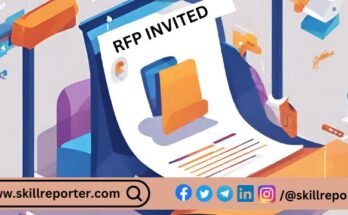Panaji : The mismatch between the information disseminated in the educational institutions and the requirement of the local industry could end faster than expected with the National Skill Qualification Framework (NSQF), which is a competency-based framework organizing all qualifications according to a series of levels of knowledge, skills and aptitude, and set under the Ministry of Skill Development And Entrepreneurship (MSDE), receiving good response from the Goan students.
The NSQF aims towards imparting skills to students from class IX onward in various vocational sectors. It is presently being executed in only government high schools around Goa. Following a skill gap analysis carried by the National Skill Development Corporation (NSDC) in the year 2013-14, the NSQF was implemented in the state from the academic year 2014-15, and four vocational sectors – automobile, information technology and information technology-enabled services, healthcare and retail – were introduced in 38 government schools.
The academic year 2015-16 witnessed 37 more government high schools being brought under the ambit of NSQF, with 11 additional vocational sectors including agriculture, beauty and wellness, apparel, physical education construction, banking financial services and insurance, travel and tourism, hospitality and media and entertainment among others being introduced.
“This year, we intend to rope in three more schools including 2 technical schools and one Valpoi-based high school under the NSQF, as also introduce a new vocational sector namely electronics and electrical,” informed Prof Bharat Naik, who is a state co-ordinator, and handles the Framework along with Prof Nagendra Kore and Prof John Silveira, under the premises of the Rashtriya Madhyamik Shiksha Abhiyan, department of education. Dr Shambhu Ghadi, the assistant director of education, is the state nodal officer for the Framework.
“We are approaching the third year of implementation of the NSQF in Goa,” Prof Naik stated, adding that under the framework, every government high school had been allocated one or two trades depending on their student strength, and every student in the selected schools has to select vocational sector of his or her choice starting from class IX. “The four levels of this basic certificate course are conducted at class IX, SSC, class XI and HSSC, after which the students receive a Certificate of Skill from the NSDC, which is valid throughout the country for job in the particular sector,” he said, noting that the examination for the trade is conducted by respective schools for class IX and class XI students, while Goa Board conducts the exam at the SSC and the HSSC level.
Pt Sunderlal Sharma Central Institute of Vocational Education has prepared the syllabus for the vocational sectors and provides teacher’s handbook, students’ workbooks and curriculum to the schools. The instructors conduct the classes for the vocational sectors during the school hours, while the practicals are held after the school hours.
“We have already received fantastic support from the Goan industry, which has linked itself with the implementation of NSQF in Goa,” Prof Kore stated, adding that the co-ordinators have visited all the selected schools, inspected the sites, and if need be, also allowed some schools to shift from one vocational sector to another. “We have also set up laboratories to these schools, with necessary tools and equipment,” he said, informing that the instructors conduct the theory examination, while representatives of the industry evaluate the students at the practical exam.
The theory paper as well as the practical examination for every vocational sector comprises of 30 marks each, while 10 marks each are allotted to assignment, portfolio, viva and project. The vocational sectors also carry aspects such as communication skill, attitude building and the art of presentation. Speaking further, Prof Naik said that presently altogether 4,300 students are taking benefit of the NSQF under 15 different vocational sectors, in 75 government high schools. “In all, 114 instructors, who are well trained as per the requirement of the industry, groom these students,” he added, pointing out that 1,164 out of these 4,300 students have answered their SSC exams and are awaiting results.
Prof Kore maintained that an important part of the NSQF is visit of the students to the industrial units or commercial institutions linked to their vocational sector. “An institution of repute no less than the Reserve Bank of India has shown interest in the government high school at Bethora, which conducts course linked to banking financial services and insurance,” he added.
The students, who receive their Certificate of Skill at level 4, after completing HSSC, have option to either join the industry or continue their education anywhere up to level 10, which includes diploma level – diploma and advance diploma – and degree level including graduation, post graduation, masters and doctorate.
“The University Grants Commission (UGC)has already informed all universities around the country to have NSQF compliance, so that they could make available education to the students up to level 10,” said Prof Naik, while stating that the Recognition of Prior Learning (RPL) concept, which is the process of recognizing previous learning towards gaining a qualification, would be implanted in the state in two years’ time. “This concept will make available open schooling, thus helping the dropouts to return to the educational mainstream,” he added, observing that as a student increases his level at the NSQF vocational sector, his qualification pack increases, in turn, making him fit for higher jobs.
The vocational sectors, within two years of implementation of the NSQF in Goa, have gone so well with the local industry that the moment a student having a NSDC Certificate of Skill completes 18 years of age, he is offered a job in the area of skill he possesses, concluded Prof Kore.
Note: News shared for public awareness with reference to the information provided at online news portals.



